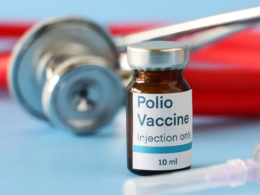Bulawayo in July this year recorded a Diarrhoea outbreak in Pumula, which has since spread to other parts of Zimbabwe’s second largest city forcing the local authority to offer free treatment to those affected. To date over 1000 cases have been recorded.
Below is what you need to know about Diarrhoea:
WHAT IS DIARRHOEA?
· The World Health Organisation defines Diarrhoea as the passage of three or more loose or liquid stools per day (or more frequent passage than is normal for the individual).
· However, frequent passing of formed stools is not diarrhoea, nor is the passing of loose, “pasty” stools by breastfed babies.
· It is important to note that Diarrhoea is usually a symptom of an infection in the intestinal tract, which can be caused by a variety of bacterial, viral and parasitic organisms.
· Infection is spread through contaminated food or drinking water, or person to person as a result of poor hygiene.
CAUSES
Infection
· Diarrhoea is a symptom of infections caused by a host of bacterial, viral and parasitic organisms, most of which are spread by faeces-contaminated water. Infection is more common when there is a shortage of adequate sanitation and hygiene and safe water for drinking, cooking and cleaning.
· Rotavirus and Escherichia coli, are the two most common etiological agents of moderate-to-severe diarrhoea in low-income countries.
· Other pathogens such as cryptosporidium and shigella species may also be important.
· Location-specific etiologic patterns also need to be considered.
Malnutrition
· Children who die from diarrhoea often suffer from underlying malnutrition, which makes them more vulnerable to diarrhoea.
· Each diarrhoeal episode, in turn, makes their malnutrition even worse.
· Diarrhoea is a leading cause of malnutrition in children under five years old.
Contaminated water source
· Water contaminated with human faeces, for example, from sewage, septic tanks and latrines, is of particular concern.
· Animal faeces also contain microorganisms that can cause diarrhoea.
OTHER CAUSES
· Diarrhoeal disease can also spread from person to person, aggravated by poor personal hygiene.
· Food is another major cause of diarrhoea when it is prepared or stored in unhygienic conditions.
· Unsafe domestic water storage and handling is also an important risk factor.
· Fish and seafood from polluted water may also contribute to the disease.
PREVENTION AND TREATMENT
Key measures to prevent diarrhoea include:
· Access to safe drinking water;
· Use of improved sanitation;
· Hand washing with soap;
· Exclusive breastfeeding for the first six months of life;
· Good personal and food hygiene;
· Health education about how infections spread; and
· Rotavirus vaccination.
Key measures to treat diarrhoea include the following:
Rehydration
· With oral rehydration salts (ORS) solution.
· ORS is a mixture of clean water, salt and sugar.
· It costs a few cents per treatment.
· ORS is absorbed in the small intestine and replaces the water and electrolytes lost in the faeces.
Zinc supplements
· Zinc supplements reduce the duration of a diarrhoea episode by 25% and are associated with a 30% reduction in stool volume.
Rehydration
· With intravenous fluids in case of severe dehydration or shock.
Nutrient-rich foods
· The vicious circle of malnutrition and diarrhoea can be broken by continuing to give nutrient-rich foods – including breast milk – during an episode, and by giving a nutritious diet – including exclusive breastfeeding for the first six months of life – to children when they are well.
Consulting a health professional
· Consulting a health professional, in particular for the management of persistent diarrhoea or when there is blood in stool or if there are signs of dehydration.









